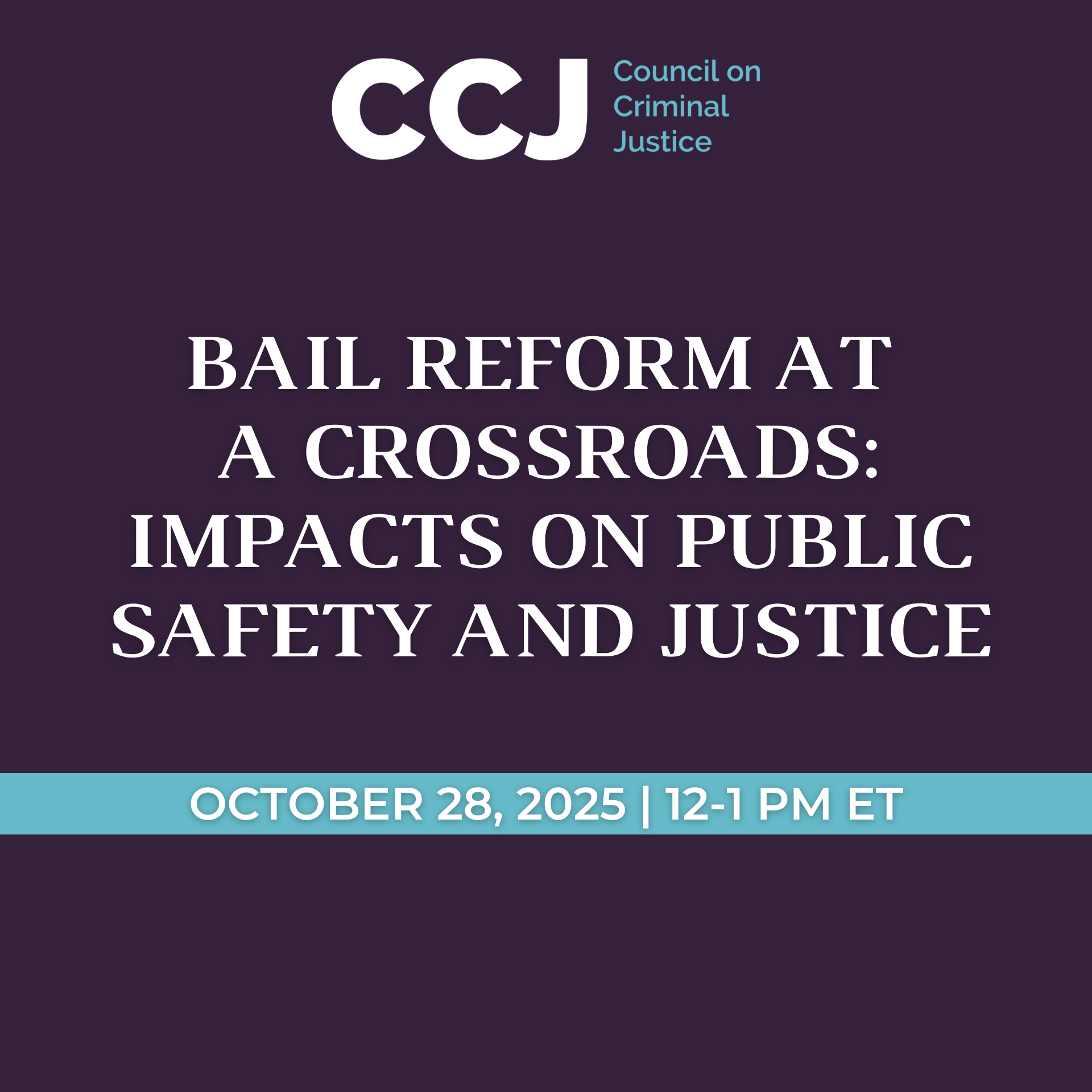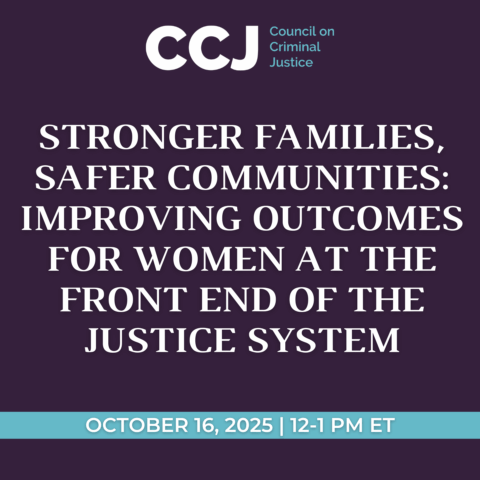New CCJ analysis of mid-year crime trends also shows year-over-year decreases in motor vehicle theft and carjacking, while shoplifting continues to rise
FOR IMMEDIATE RELEASE
5:00 a.m. ET, July 25, 2024
Contact: Brian Edsall
bedsall@counciloncj.org
845-521-9810
WASHINGTON – Homicide and most other violent crimes have dropped to or slightly below levels seen before the onset of the COVID pandemic and nationwide protests that followed the killing of George Floyd, according to a new analysis of crime trends in 39 cities released today by the Council on Criminal Justice.
Examining patterns for 12 crime types in cities that have consistently published monthly data over the past six years, the study also found that levels of 11 of those offenses were lower in the first six months of this year compared to the first half of 2023. (Shoplifting was the exception.) The number of homicides in the 29 cities providing data for that crime was 13% lower, representing 319 fewer homicides in those cities. Nineteen of the 29 study cities recorded a homicide decrease during the first half of the year, ranging from a drop of 71% in Chandler, AZ, to an 8% decline in Austin. Nine cities experienced increases, ranging from 5% in St. Louis to 26% in Buffalo.
Motor vehicle theft, a crime that had risen sharply since the summer of 2020, reversed course during the first six months of this year, falling 18% below the first half of 2023. Residential burglaries (-14%), nonresidential burglaries (-10%), larcenies (-6%), and drug offenses (-2%) all decreased during the same period.
But shoplifting was a different story. A crime that has received extensive attention from the media and policymakers, reported shoplifting incidents increased by 24% in 23 study cities during the first six months of 2024. The report’s authors cautioned that it was unclear how much of the change may reflect an actual rise in incidents or increased reporting of incidents to law enforcement.
“Especially with homicide, the continuing downward trends we’re seeing so far this year are heartening, as every killing prevented is a life saved,” said CCJ Senior Research Specialist Ernesto Lopez, co-author of the report. “But crime is heavily influenced by local factors, and despite the national trends, many U.S. cities continue to face intolerably high levels of violence.”
Looking at trends over a longer period, the study found that there were 2% fewer homicides during the first half of 2024 compared to the same period in 2019, 15% fewer robberies, 8% fewer domestic violence incidents, and 0.2% fewer aggravated assaults. Gun assaults were 1% higher during the first half of 2024 compared to the first half of 2019, while carjacking, a crime that is relatively uncommon but began to spike shortly after the onset of the pandemic, was 68% higher.
Property crime trends have been more mixed over the last five years. There were fewer residential burglaries (-39%) and larcenies (-9%), but more nonresidential burglaries (+14%) and more shoplifting (+10%) in the first half of 2024 compared to the first half of 2019. Motor vehicle thefts more than doubled (+66%) during that timeframe. Drug offenses were 28% lower.
New fact sheets also released today provide additional details on trends in burglary, robbery, larceny, and assault.
“It’s wonderful to see the overall trends bend back in the right direction, but the progress is very uneven and being driven by large drops in a handful of high-homicide cities,” said CCJ President and CEO Adam Gelb. “Policymakers and community leaders can accelerate the momentum by doubling down on crime-prevention strategies that are backed by evidence and are delivering measurable results.”
The report’s authors had a similar message, noting that to achieve long-term reductions in crime, local, state, and federal governments, along with communities and industries, must adopt research-based public safety strategies. CCJ’s Task Force on Policing and Violent Crime Working Group highlight numerous reforms to improve policing and strengthen the overall effectiveness of violence reduction efforts in the U.S., including the Working Group’s Ten Essential Actions, which was the foundation for the Violent Crime Reduction Roadmap adopted by the Department of Justice in December 2023.
The mid-year study comes on the heels of a report by CCJ’s Crime Trends Working Group which lays out a plan to improve the nation’s crime data infrastructure to better equip policymakers with the information critical to effectively address community violence and other public safety challenges. The group’s report and the mid-year trends will be discussed at a live web event Thursday, July 25, at 12ET.
Support for the mid-year crime analysis comes from The Annie E. Casey Foundation, Arnold Ventures, the Harry Frank Guggenheim Foundation, Southern Company Foundation, Stand Together, and CCJ’s general operating contributors.
About the Report and Data
Co-authored by Lopez and Doctoral Candidate Bobby Boxerman, the new analysis updates a series of a dozen earlier reports with new data through June 2024. It examined crime rates for 12 violent, property, and drug offenses in 39 U.S. cities, including Atlanta, St. Louis, Baltimore, Seattle, Philadelphia, Phoenix, and Detroit. The smallest city in the sample was Syracuse, NY, with about 142,000 residents; the largest was New York City, with more than 8.4 million residents. The 39 cities were selected because they have consistently published monthly crime data over the past six years, allowing researchers to examine longer-term patterns as well as changes within the past year. The study cities are not necessarily representative of all jurisdictions in the U.S., and not all cities reported data for each offense.
The data for this report were obtained within days of the end of the study period in order to provide a timely snapshot of crime across the nation. As a result, these figures may and likely will differ from data subsequently published by individual police departments. For the most up-to-date information for a specific city, please visit its website.
About the Council on Criminal Justice
The Council on Criminal Justice (CCJ) is a nonpartisan think tank and invitational membership organization that advances understanding of the criminal justice policy challenges facing the nation and builds consensus for solutions based on facts, evidence, and fundamental principles of justice.




